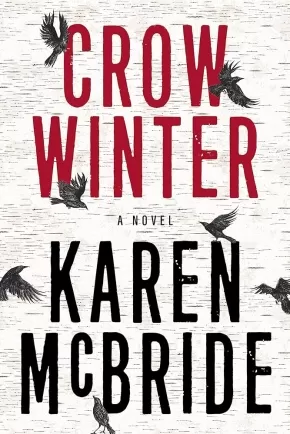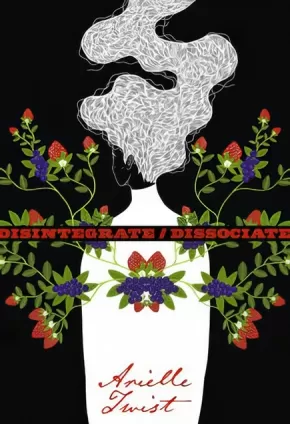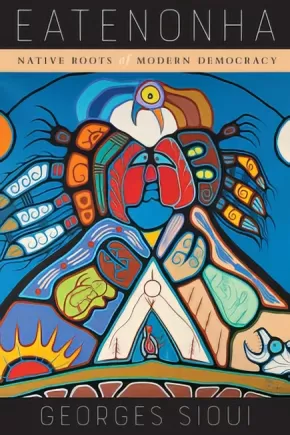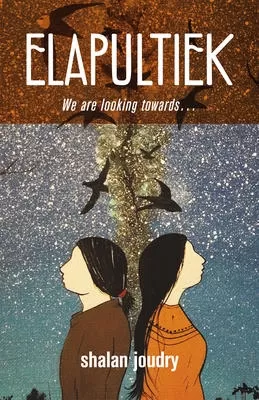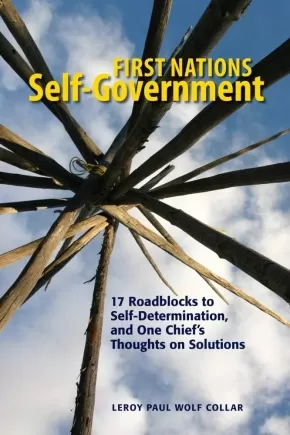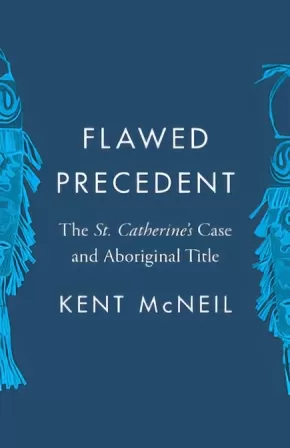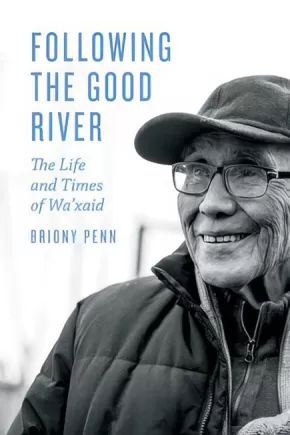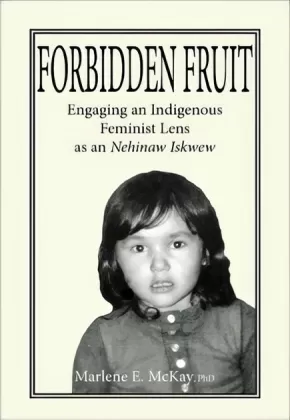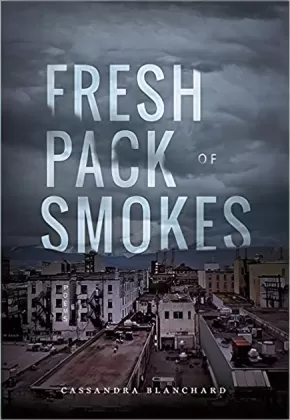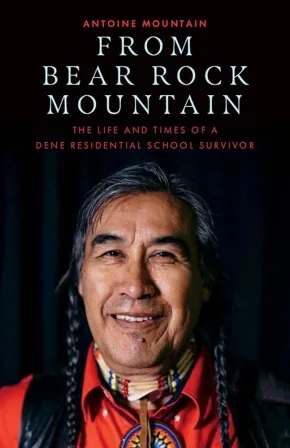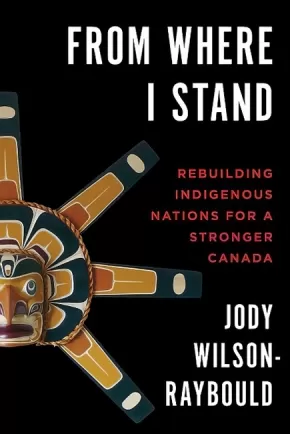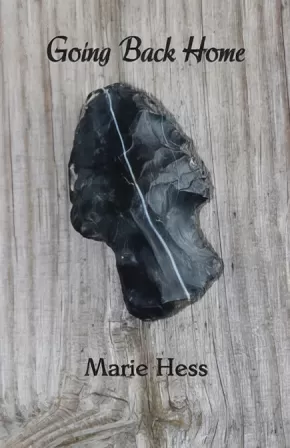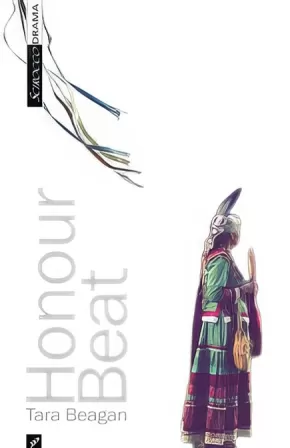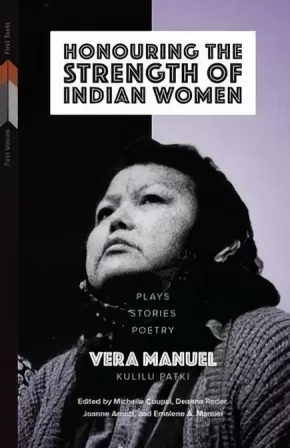First Nations
Synopsis:
Nanabush. A name that has a certain weight on the tongue—a taste. Like lit sage in a windowless room or aluminum foil on a metal filling.
Trickster. Storyteller. Shape-shifter. An ancient troublemaker with the power to do great things, only he doesn’t want to put in the work.
Since coming home to Spirit Bear Point First Nation, Hazel Ellis has been dreaming of an old crow. He tells her he’s here to help her, save her. From what, exactly? Sure, her dad’s been dead for almost two years and she hasn’t quite reconciled that grief, but is that worth the time of an Algonquin demigod?
Soon Hazel learns that there’s more at play than just her own sadness and doubt. The quarry that’s been lying unsullied for over a century on her father’s property is stirring the old magic that crosses the boundaries between this world and the next. With the aid of Nanabush, Hazel must unravel a web of deceit that, if left untouched, could destroy her family and her home on both sides of the Medicine Wheel.
Reviews
“Full of spirit, love, mystery and good medicine, Crow Winter tells the story of Hazel and one very tricky little crow. Karen McBride’s debut novel ambitiously and successfully balances all these things creating a world and story that will stay with you after you have turned that last page.” - Katherena Vermette, award-winning author of The Break
"Algonquin Anishinaabe writer Karen McBride's debut is about a young woman who moves home to her First Nation reserve after losing her father. Dealing with grief and while memories are flooding her thoughts, Hazel's dreams are disturbed by her trickster kin, a crow, Nanabush.
As she starts to unravel her father's history with a local quarry, the crow is a constant companion and guides her to find the truth. The physical and spiritual worlds are seamlessly woven together, and we are taken inside the experience Hazel is having reconciling her truth with her father's and the imposing facts of the real world.
A lovely story full of spirit and imagery that stays with you long after the final page. Karen is a writer to watch." - Sandy, indieCHOICE
Additional Information
352 pages | 5.50" x 8.50"
Synopsis:
A collection of letter and prayer poems in which an Indigenous speaker engages with non-Indigenous famous Canadians.
D.A. Lockhart's stunning and subversive fourth collection gives us the words, thoughts, and experiences of an Anishinaabe guy from Central Ontario and the manner in which he interacts with central aspects and icons of settler Canadian culture. Riffing off Richard Hugo's 31 Letters and 13 Dreams, the work utilizes contemporary Indigenous poetics to carve out space for often ignored voices in dominant Canadian discourse (and in particular for a response to this dominance through the cultural background of an Indigenous person living on land that has been fundamentally changed by settler culture).
The letter poems comprise a large portion of this collection and are each addressed to specific key public figures--from Sarah Polley to Pierre Berton, k.d. lang to Robertson Davies, Don Cherry to Emily Carr. The second portion of the pieces are prayer poems, which tenderly illustrate hybrid notions of faith that have developed in contemporary Indigenous societies in response to modern and historical realities of life in Canada. Together, these poems act as a lyric whole to push back against the dominant view of Canadian political and pop-culture history and offer a view of a decolonized nation.
Because free double-doubles...
tease us like bureaucratic promises
of medical coverage and housing
not given to black mold and torn-
off siding. Oh Lord, let us sing anew,
in this pre-dawn light, a chorus
that shall not repeat Please Play Again. (from "Roll Up the Rim Prayer")
Reviews
"Rock-solid... full of heartfelt grit and conviction. D.A. Lockhart conjures the world through a catalogue of vivid particulars and a cast of inimitable characters, from Edna Puskamoose, a locally famous Pow-Wow dancer, to James Bond, that internationally notorious 'colonial trickster'. THis is poetry that follows the 'right crooked path' through 'the medicine smoke of history". - Campbell McGrath
Educator Information
Recommended in the Canadian Indigenous Books for Schools 2020/2021 resource list for grade 12 for English Language Arts and Social Studies.
Caution: Mature, foul language used throughout. The term "Indian" is also used throughout.
Additional Information
72 pages | 6.00" x 8.75"
Synopsis:
In her powerful debut collection of poetry, Arielle Twist unravels the complexities of human relationships after death and metamorphosis. In these spare yet powerful poems, she explores, with both rage and tenderness, the parameters of grief, trauma, displacement, and identity. Weaving together a past made murky by uncertainty and a present which exists in multitudes, Arielle Twist poetically navigates through what it means to be an Indigenous trans woman, discovering the possibilities of a hopeful future and a transcendent, beautiful path to regaining softness.
Awards
- 2020 Indigenous Voices Awards Winner for Published Poetry in English
Additional Information
|
Synopsis:
An exploration of the historical and future significance of Canada's Native soul.
Eatenonha is the Wendat word for love and respect for the Earth and Mother Nature. For many Native peoples and newcomers to North America, Canada is a motherland, an Eatenonha - a land in which all can and should feel included, valued, and celebrated.
In Eatenonha Georges Sioui presents the history of a group of Wendat known as the Seawi Clan and reveals the deepest, most honoured secrets possessed by his people, by all people who are Indigenous, and by those who understand and respect Indigenous ways of thinking and living. Providing a glimpse into the lives, ideology, and work of his family and ancestors, Sioui weaves a tale of the Wendat's sparsely documented historical trajectory and his family's experiences on a reserve. Through an original retelling of the Indigenous commercial and social networks that existed in the northeast before European contact, the author explains that the Wendat Confederacy was at the geopolitical centre of a commonwealth based on peace, trade, and reciprocity. This network, he argues, was a true democracy, where all beings of all natures were equally valued and respected and where women kept their place at the centre of their families and communities.
Identifying Canada's first civilizations as the originators of modern democracy, Eatenonha represents a continuing quest to heal and educate all peoples through an Indigenous way of comprehending life and the world.
Reviews
"Eatenonha is a unique interweaving of self, family, First Nation, and Indigenous peoples of the Americas and elsewhere." - John Steckley, Humber College
Educator Information
Recommended in the Canadian Indigenous Books for Schools 2020/2021 resource list for grades 10 to 12 for use in these areas: English Language Arts and Social Studies.
Additional Information
200 pages | 6.00" x 9.00"
Synopsis:
Set in contemporary times, a young Mi'kmaw drum singer and a Euro-Nova Scotian biologist meet at dusk each day to count a population of endangered Chimney Swifts (kaktukopnji'jk). They quickly struggle with their differing views of the world. Through humour and story, the characters must come to terms with their own gifts and challenges as they dedicate efforts to the birds. Each "count night" reveals a deeper complexity of connection to land and history on a personal level.
Inspired by real-life species at risk work, shalan joudry originally wrote this story for an outdoor performance.
Elapultiek calls on all of us to take a step back from our routine lives and question how we may get to understand our past and work better together. The ideal of weaving between Indigenous and non-Indigenous worlds involves taking turns to speak and to listen, even through the most painful of stories, in order for us all to heal. We are in a time when sharing cultural, ecological, and personal stories is vital in working towards a peaceful shared territory, co-existing between peoples and nature.
"It's a crucial time to have these conversations," offers joudry. "The power of story can engage audience and readers in ways that moves them to ask more questions about the past and future."
Additional Information
96 pages | 6.00" x 9.00"
Synopsis:
Indigenous Peoples in Canada are continuing to assert their right to self-determination in this era of reconciliation. While dozens of Indigenous communities have signed varying forms of self-government agreements with the federal government, Indigenous Nations still face many obstacles along the path to true self-determination.
As a former Chief of Siksika Nation in southern Alberta, Leroy Wolf Collar dealt with many of the same problems other Indigenous Nations face across the country. From serious housing shortages to the lack of opportunities for youth, Chief Wolf Collar experienced the challenges and frustrations that come from operating in a colonial system still constrained by the Indian Act.
How do Indigenous Peoples move on from this defective system? Chief Wolf Collar identifies 17 issues that currently hinder Indigenous Nations—including broken treaty promises, problems with common forms of band administration, and the intrusion of provincial governments—along with potential solutions to overcome them.
This guide is for current and aspiring Indigenous leaders who want to increase their understanding of good governance, management, and leadership, as well as those who want to explore issues around Indigenous self-determination in Canada.
Educator Information
Recommended in the Canadian Indigenous Books for Schools 2020/2021 resource list for grades 11 and 12 for use in these areas: Law, English Language Arts, and Social Studies.
Additional Information
128 pages | 6.00" x 9.00"
Synopsis:
In 1888, the Judicial Committee of the Privy Council in London ruled in St. Catherine’s Milling and Lumber Company v. The Queen, a case involving the Saulteaux people’s land rights in Ontario. This precedent-setting case would define the legal contours of Aboriginal title in Canada for almost a hundred years, despite the racist assumptions about Indigenous peoples at the heart of the case.
In Flawed Precedent, preeminent legal scholar Kent McNeil thoroughly investigates this contentious case. He begins by delving into the historical and ideological context of the 1880s. He then examines the trial in detail, demonstrating how prejudicial attitudes towards Indigenous peoples and their use of the land influenced the decision. He also discusses the effects that St. Catherine’s had on Canadian law and policy until the 1970s when its authority was finally questioned by the Supreme Court in Calder, then in Delgamuukw, Marshall/Bernard, Tsilhqot’in, and other key rulings.
McNeil has written a compelling and illuminating account of a landmark case that influenced law and policy on Indigenous land rights for almost a century. He also provides an informative analysis of the current judicial understanding of Aboriginal title in Canada, now driven by evidence of Indigenous law and land use rather than by the discarded prejudicial assumptions of a bygone era.
This book is vital reading for everyone involved in Aboriginal law or title, legal historians and scholars, and anyone interested in Indigenous rights in Canada.
Additional Information
224 pages | 5.50" x 8.50" | 10 b&w photos, 4 maps
Synopsis:
Based on recorded interviews and journal entries this major biography of Cecil Paul (Wa’xaid) is a resounding and timely saga featuring the trials, tribulations, endurance, forgiveness, and survival of one of North American’s more prominent Indigenous leaders.
Born in 1931 in the Kitlope, Cecil Paul, also known by his Xenaksiala name, Wa’xaid, is one of the last fluent speakers of his people’s language. At age ten he was placed in a residential school run by the United Church of Canada at Port Alberni where he was abused. After three decades of prolonged alcohol abuse, he returned to the Kitlope where his healing journey began. He has worked tirelessly to protect the Kitlope, described as the largest intact temperate rainforest watershed in the world. Now in his late 80s, he resides on his ancestors’ traditional territory.
Following upon the success of Wa'xaid's own book of personal essays, Stories from the Magic Canoe, Briony Penn's major biography of this remarkable individual will serve as a timely reminder of the state of British Columbia's Indigenous community, the environmental and political strife still facing many Indigenous communities, and the philosophical and personal journey of a remarkable man.
Additional Information
376 pages | 6.00" x 9.00"
Synopsis:
Forbidden Fruit: Engaging an Indigenous Feminist Lens as an Neninaw Iskwew is a feminist based memoir acknowledging that people are measured, categorized, and placed in a hierarchal order that is deeply influenced by discourses predicated upon social processes.
Dr. McKay’s Indigenous feminism is about being aware that due to the colonial patriarchy that has seeped through Indigenous social and cultural systems, Indigenous women are positioned differently in economic, social and political structures. Marlene masterfully uses her own life experiences to assert that colonialism and Indigenous cultures obscure the role of women in a way that continues both their marginalization and the binary of the princess/squaw (p. 11).
Additional Information
98 pages | 6.00" x 9.00"
Synopsis:
“This night in Oppenheimer Park Dan asked me to shit-kick this chick in the face as she owed money and I said no because I didn’t know who she was and I wasn’t about to play with fire so he sat on the bench then stood up and did a flying kick twice to her chin and she convulsed and passed out he said he didn’t want to spill blood because she had HIV…”—“Tales”
Dissecting herself and the life she once knew living in Vancouver’s Downtown Eastside as a bonafide drug addict, Blanchard writes plainly about violence, drug use and sex work in Fresh Pack of Smokes, offering insight into an often overlooked or misunderstood world.
Reviews
“Reading Cassandra Blanchard’s debut poetry collection Fresh Pack of Smokes feels like, to borrow a phrase from her work, someone “poured a bucket of blood” on your head. Such visceral images flood the pages of Blanchard’s autobiographical stories, pulling readers in with humanizing force.” - Emma Cooper, The Tyee
Educator Information
Recommended in the Canadian Indigenous Books for Schools 2019-2020 resource list as being useful for grade 12 students for the following subjects: English Language Arts, Social Justice.
Contains foul and sexual language, graphic content, violence, interpersonal abuse, and drug use, which may be disturbing to some readers.
Additional Information
96 pages | 5.50" x 8.00"
Synopsis:
In this poetic, poignant memoir, Dene artist and social activist Antoine Mountain paints an unforgettable picture of his journey from residential school to art school—and his path to healing.
In 1949, Antoine Mountain was born on the land near Radelie Koe, Fort Good Hope, Northwest Territories. At the tender age of seven, he was stolen away from his home and sent to a residential school—run by the Roman Catholic Church in collusion with the Government of Canada—three hundred kilometres away. Over the next twelve years, the three residential schools Mountain was forced to attend systematically worked to erase his language and culture, the very roots of his identity.
While reconnecting to that which had been taken from him, he had a disturbing and painful revelation of the bitter depths of colonialism and its legacy of cultural genocide. Canada has its own holocaust, Mountain argues.
As a celebrated artist and social activist today, Mountain shares this moving, personal story of healing and the reclamation of his Dene identity.
Educator Information
Recommended in the Canadian Indigenous Books for Schools 2019-2020 resource list as being useful for grades 9 to 12 in the following subject areas: English Language Arts, Social Studies.
Included in this story are personal stories of residential school and addiction.
Additional Information
272 pages | 5.50" x 8.50"
Synopsis:
An Indigenous leader who has dedicated her life to Indigenous Rights, Jody Wilson-Raybould has represented both First Nations and the Crown at the highest levels. And she is not afraid to give Canadians what they need most – straight talk on what has to be done to deconstruct the colonial legacy and achieve true reconciliation in Canada.
In this powerful book, drawn from Wilson-Raybould’s speeches and other writings, she urges us all – governments, Indigenous Nations, everyone – to build upon the momentum already gained in the reconciliation process or risk hard-won progress being lost. The choice is stark: support Indigenous-led initiatives for Nation rebuilding or revert to governments just managing “the problem.” Frank and impassioned, she also argues that true reconciliation will never occur so long as governments deny Indigenous Peoples their rights and the Indian Act continues to exist. Until then, we’ll be stuck in the status quo – mired in conflicts and expensive court cases that do nothing to improve people’s lives or heal the country.
The good news is that Indigenous Nations already have the solutions. Now it is time to act and build a shared future based on the foundations of trust, cooperation, good governance, and recognition. Removing the barriers that are keeping these solutions from being put into effect will not only empower Indigenous Peoples – it will enrich all Canadians and make Canada stronger.
From Where I Stand is indispensable reading for anyone who wants to dig deeper into the reconciliation process and know what they can do to make a difference, from engaged citizens and students to leaders and policy-makers, educators and academics, and lawyers and consultants.
Reviews
"From Where I Stand is a must-read book for all Canadians. Puglaas shares a clear understanding of where we have come from, the issues we must address, and the pathways to a transformed future. Having witnessed her remarkable courage and capacity as Canada’s attorney general and her determination to do what is right without succumbing to unrelenting political pressure, Puglaas stands tall among Canadians as a person for whom truth, thoughtfulness, and principle are not mere words – but values to sustain a different kind of policy and politics." - Mary Ellen Turpel-Lafond (Aki-Kwe), Professor of Law, Allard Law School UBC, and Director of the Residential School History and Dialogue Centre
"Jody Wilson-Raybould's quest for justice has long driven her work. I first saw this when she was a law student and this commitment to justice has only been deepened by subsequent public service. Her unwavering commitment to reconciliation, balance, and good governance springs off every page of this book." - John Borrows, Canada Research Chair in Indigenous Law, University of Victoria Law School
Educator Information
Table of Contents
Foreword
Introduction
Moving through the Postcolonial Door
We Truly Have Come a Long Way ...
Idle No More and Recapturing the Spirit and Intent of the Two Row Wampum
On the Parallels, and Differences, between Canada and South Africa
Our Shared Histories and the Path of Reconciliation
Rights and Recognition
Self-Determination and the Inherent Right of Self-Government
Translating Hard-Fought-For Rights into Practical and Meaningful Benefits
UNDRIP Is the Start Not the Finishing Line
Defining the Path of Reconciliation through Section 35
Indigenous Rights Are Human Rights
Implementing UNDRIP
Governance in the Post-Indian Act World
Toppling the Indian Act Tree
First Nations Jurisdiction over Citizenship
Holding and Managing Our Lands
On Accountability and Transparency
Developing a New Fiscal Relationship
The Governance Toolkit and Building on Our Success
Building Business Relationships and the Duty to Consult
Economic Development Depends on Self-Government
First Nations Are Not a Box to Tick Off
Who Owns and Is Responsible for the Water?
On Certainty and Why It’s Elusive
Restoring Balance, Correcting Injustices, and Remaining Vigilant
A Litmus Test for Reconciliation Is the Status of Women
Preventing First Contacts with the Criminal Justice System
On Sticking Our Necks Out
On Obstruction, Denial, and Canada’s Failure to Uphold the Rule of Law
Each of Us, In Our Own Way, Is a Hiligaxste’
Acknowledgments
A Note on Terminology and the Speeches
Index
Additional Information
264 pages | 6.00" x 9.00"
Synopsis:
Written by a Mohawk Institute Residential School survivor, this is a fierce and candid story that reveals the heartbreaking trauma of that tragic time in our history. The author portrays how the ongoing impact of the residential schools confinements has affected Indigenous communities over several generations and has contributed to many social problems that continue to exist today. By exploring that devastating history, the author finds and celebrates the resilient and hopeful spirit that many residential school survivors, like herself, have managed to retain in the face of horror and torment.
Additional Information
160 pages | 5.50" x 8.50"
Synopsis:
Two grown sisters face off over their mother's deathbed. Together they confront one another, their own identities, and what will remain when their mom leaves this world. A contemporary look at the significance of faith and family, Honour Beat evokes both laughter and tears as three women grapple with one of life's most difficult inevitabilities.
Reviews
"Honour Beat is an important work of art...It celebrates -- honours --women as the givers and sustainers of life...The ending is extraordinary." -Globe & Mail
"The final uplifting, spiritual moments of Honour Beat will linger with you long after you've left the theatre...the beautiful sentiments at the heart of the play." -Calgary Herald
Educator Information
Recommended in the Canadian Indigenous Books for Schools 2019-2020 resource list as being useful for grades 10 to 12 for English Language Arts, Acting, Drama, and Social Studies.
Includes mature subject matter with references to trauma, rape, and sexual and physical abuse.
Additional Information
80 pages | 5.50" x 8.50"
Synopsis:
This critical edition delivers a unique and comprehensive collection of the works of Ktunaxa-Secwepemc writer and educator Vera Manuel, daughter of prominent Indigenous leaders Marceline Paul and George Manuel. A vibrant force in the burgeoning Indigenous theatre scene, Vera was at the forefront of residential school writing and did groundbreaking work as a dramatherapist and healer. Long before mainstream Canada understood and discussed the impact and devastating legacy of Canada’s Indian residential schools, Vera Manuel wrote about it as part of her personal and community healing. She became a grassroots leader addressing the need to bring to light the stories of survivors, their journeys of healing, and the therapeutic value of writing and performing arts.
A collaboration by four Indigenous writers and scholars steeped in values of Indigenous ethics and editing practices, the volume features Manuel’s most famous play, "Strength of Indian Women"—first performed in 1992 and still one of the most important literary works to deal with the trauma of residential schools—along with an assemblage of plays, written between the late 1980s until Manuel’s untimely passing in 2010, that were performed but never before published. The volume also includes three previously unpublished short stories written in 1988, poetry written over three decades in a variety of venues, and a 1987 college essay that draws on family and community interviews on the effects of residential schools.
Reviews
“An invaluable contribution to our literature about residential school experiences and the effects of transgenerational trauma. With so many current projects focused on “reconciliation,” this republication of Vera Manuel’s works recalls the often forgotten side of the equation: the truth, unvarnished by politics or bureaucracy.”– Jesse Archibald-Barber, Associate Professor of Indigenous Literatures and Performance, First Nations University of Canada
“Layered with intergenerational wisdom, replete with lived experience, this collection deftly presents both the devastating legacy of residential schools and the complex systems of care that sustain Indigenous women and fuel Indigenous resurgence.”– Carleigh Baker, author of Bad Endings
Educator & Series Information
This book is part of the First Voices, First Texts series.
Topics: Indigenous Studies, Literature, Performing Arts, Poetry.
Additional Information
416 pages | 5.50" x 8.50" | 13 b&w photographs | bibliography

